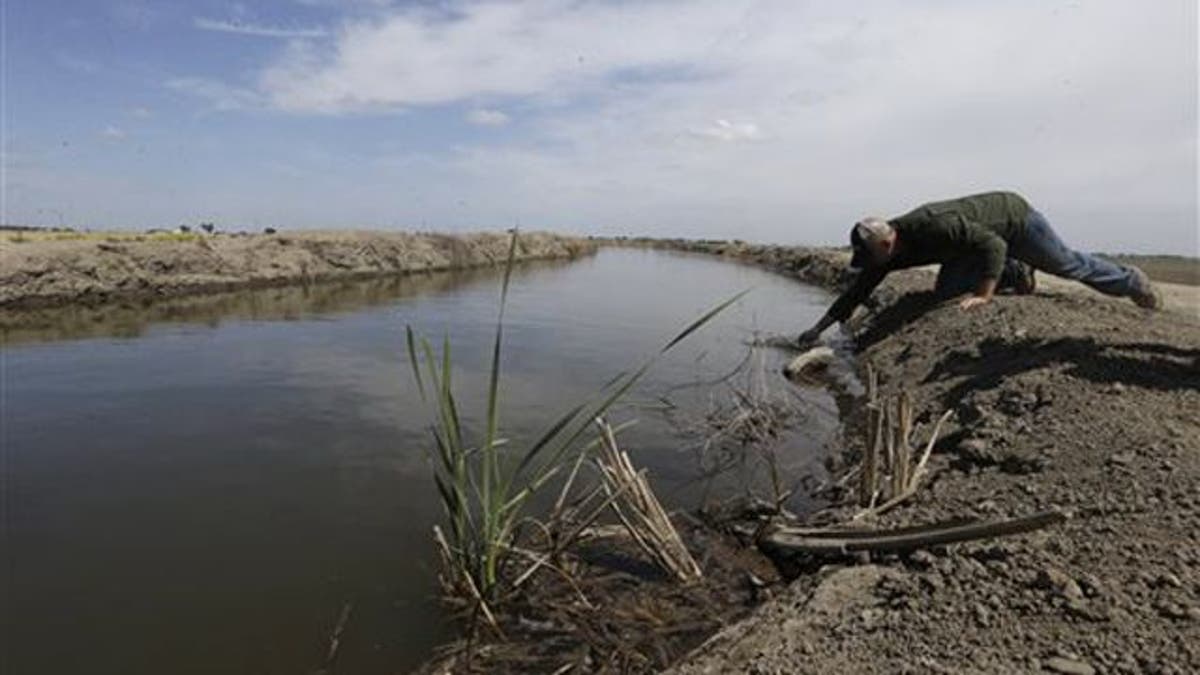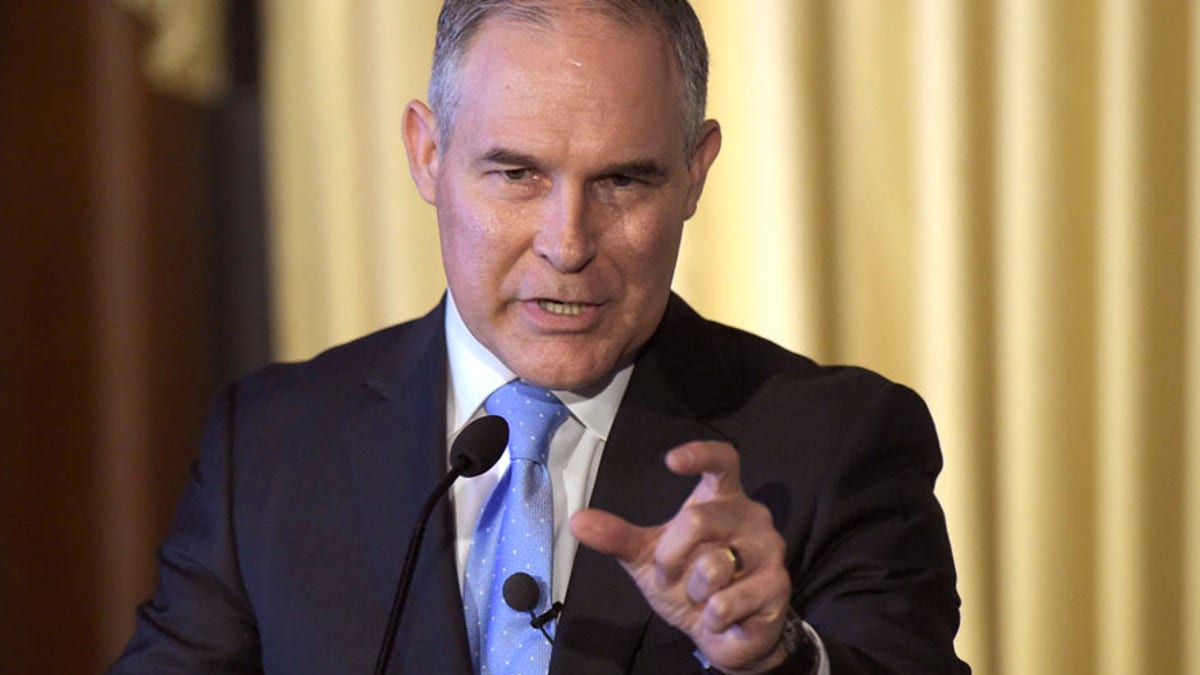
Farmer Gino Celli draws a water sample to check the salinity in an irrigation canal that runs through his fields near Stockton, Calif. in May 2015. (AP Photo/Rich Pedroncelli)
The Trump administration Tuesday announced plans to scrap an Obama-era environmental rule that had been attacked as federal overreach by farmers and property-rights groups.
The Environmental Protection Agency and Army Corps of Engineers said they would withdraw Obama's 2015 "waters of the United States" — or WOTUS — regulation, which expanded the number of waterways covered by the federal Clean Water Act. The agencies described a withdrawal process as an interim step and promised a broader review of which waters should fall under federal jurisdiction.
"We are taking significant action to return power to the states and provide regulatory certainty to our nation's farmers and businesses," EPA Administrator Scott Pruitt said, adding that the re-evaluation would be "thoughtful, transparent and collaborative with other agencies and the public."

FILE - In this Feb. 21, 2017, file photo, Environmental Protection Agency (EPA) Administrator Scott Pruitt speaks to employees of the EPA in Washington. Pruitts schedule shows he met with Dow CEO Andrew Liveris for about a half hour on March 9 during a conference held at a Houston hotel. Twenty days later Pruitt announced his decision to deny a petition to ban Dows chlorpyrifos pesticide from being sprayed on food, despite a review by his agencys own scientists that concluded ingesting even minuscule amounts of the chemical can interfere with the brain development of fetuses and infants. EPA released a copy of Pruitts March meeting schedule earlier this month following several Freedom of Information Act requests. (AP Photo/Susan Walsh, File) (AP)
The EPA and the Army Corps said dismantling the Obama rule would not change existing practices because the measure has been stayed by the 6th Circuit U.S. Court of Appeals in Cincinnati in response to opponents' lawsuits.
House Speaker Paul Ryan, R-Wis., said the move showed "the West has won in the battle over the Obama administration’s WOTUS rule.
"This regulation would have been a disaster for rural communities in the West and across the country, giving Washington near-total control over water resources," Ryan added. "The livelihoods of American farmers, ranchers, and entrepreneurs were at stake."
The debate over which waterways are covered under the Clean Water Act has dragged on for years and remains murky despite two Supreme Court rulings.
The Obama rule expanded the definition of "navigable waters” to include “intermittent streams” -- that is, streams that sometimes had no water in them at all. Environmental activists say the rule is essential to protecting water for human consumption and wildlife.
"Clean water is vital to our ecology, our health and our quality of life," John Rumpler, senior attorney with Environment America, told the Associated Press. "Repealing the Clean Water Rule turns the mission of the EPA on its head."
In February, Trump signed an executive order directing the EPA and the Army Corps of Engineers to review Obama’s expanded definition of navigable waters with a view to rescinding it.
The Associated Press contributed to this report.





















